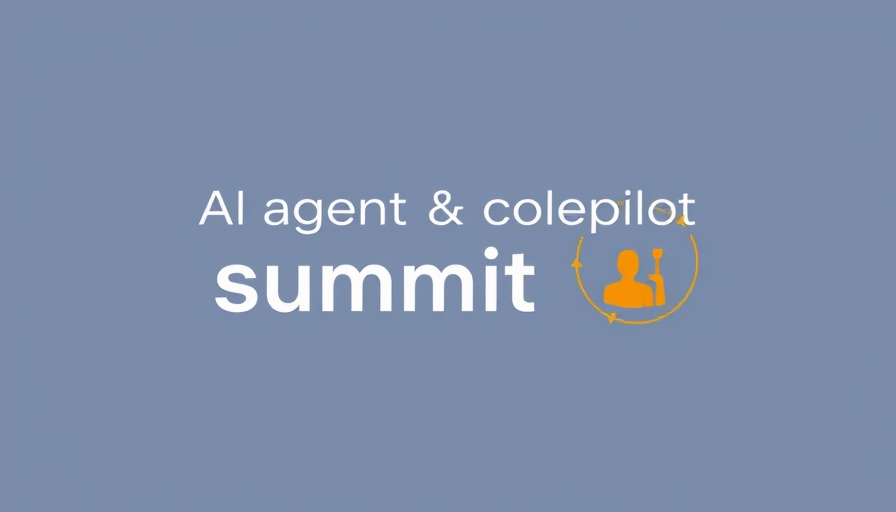
The Rise of AI Agents: Transforming the Workforce
The AI Agent & Copilot Summit 2025 has been a pivotal event in discussing the intersection of artificial intelligence (AI) and business automation. Leaders at Microsoft have illustrated that AI agents are not just a trend; they are integral to redefining work processes across various industries. With advancements in agentic AI, businesses can now expect a transformation that assesses employee performance not merely by task completion but on their ability to effectively collaborate and interact with technological agents.
Understanding the Four Phases of Agentic Transformation
Ray Smith, VP for AI Agents at Microsoft, presented a structured approach to understanding how businesses can evolve with AI technologies. He emphasized four distinct phases of agentic transformation:
- Human First: The traditional model focusing on human tasks.
- Human + Agents: Instances where humans work alongside AI to optimize processes.
- Agents First: A shift where agents lead certain initiatives, with humans providing oversight.
- Agents Only: The final stage where AI takes charge, performing tasks autonomously.
This framework not only outlines the future of labor but also challenges employees to rethink their roles in increasingly automated environments.
The Value of AI Agents in Business
AI agents are proving their worth as they automate everyday tasks and support complex business operations. Companies such as Pets at Home have already reported significant savings by employing AI agents for customer service tasks. By handling basic inquiries and operational processes, these agents free up human workers to deal with more intricate problems. This restructuring leads to improved efficiency, allowing businesses to deliver enhanced customer experiences.
Future Predictions: The Job Market Landscape
As AI agents take over more routine tasks, the job market will inevitably change. Employees will need to demonstrate proficiency in areas such as managing AI agents, deep reasoning, and utilizing these advanced technological tools. This shift will lead to a new prioritization in hiring, where an 'agent-focused portfolio' could become essential for job seekers across sectors.
Success Stories: Real-Life Applications of AI Agents
A notable example of the effective use of AI agents comes from Cineplex, where the deployment of a copilot agent drastically reduced customer service response times from fifteen minutes per request to thirty seconds. This case highlights how AI can not only expedite processes but also enhance employee and customer satisfaction, making it a win-win scenario.
The Importance of Adaptation in AI Implementation
Businesses hoping to leverage AI agents must embrace several critical decisions in their integration strategies. Choosing the right tools—such as Microsoft's Copilot Studio—can give organizations a competitive edge in navigating the complexities of AI deployment. These tools provide user-friendly interfaces that don’t require coding knowledge, enabling greater adoption across teams.
In conclusion, organizations that adapt to these changes and embrace AI agents early can position themselves as leaders in transforming industries. As we step into an era where AI integration is inevitable, it’s essential for both individuals and companies to develop the right skills and perspectives for a future dominated by intelligent agents. Strengthening your collaboration and understanding of AI today will set the stage for success in tomorrow's business landscape.
 Add Row
Add Row  Add
Add 




 Add Row
Add Row  Add
Add 

Write A Comment